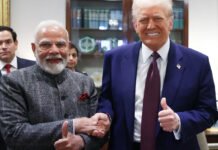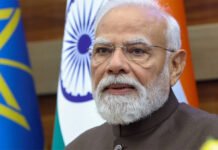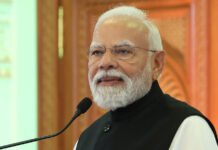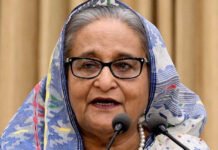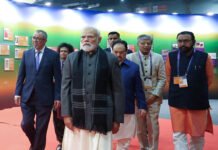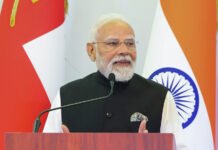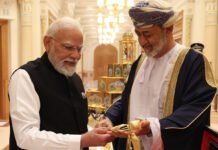In a significant political development today , Prime Minister Narendra Modi has officially resigned from his position today. This unexpected move marks a pivotal moment in Indian politics, setting the stage for the next phase of leadership. The resignation letter was handed over to President Draupadi Murmu at Rashtrapati Bhavan, following a recommendation from the Modi cabinet to dissolve the 17th Lok Sabha.
Modi Cabinet Recommends Dissolution of 17th Lok Sabha
Earlier today, the Modi cabinet, in a strategic decision, recommended the dissolution of the 17th Lok Sabha. This recommendation aligns with the upcoming political activities and reflects the government’s preparation for the next legislative phase. The dissolution of the 17th Lok Sabha signals the end of an era and the beginning of a new chapter in India’s democratic journey.
Narendra Modi’s Expected Third Term
Despite resigning from his current post, Narendra Modi is widely anticipated to take the oath as Prime Minister for a third consecutive term on June 8. This expectation comes amidst strong support within the National Democratic Alliance (NDA) and the public. Modi’s leadership has been a cornerstone of the NDA’s success, and his potential re-election as the alliance leader on June 7 further solidifies his influential role in Indian politics.
BJP’s Dominance in Recent Elections
The recent election results have showcased the BJP’s continued dominance in the Indian political landscape. Securing a commanding victory with 240 seats, the Bharatiya Janata Party (BJP) has reinforced its position as a leading political force. In contrast, the Indian National Congress managed to secure only 99 seats, highlighting the BJP’s significant lead and public mandate.
The Path Ahead for the NDA and Modi
As the NDA gears up for the upcoming parliamentary session, the focus is on strategic leadership and continued governance. Modi’s expected re-election as the leader of the alliance on June 7 is a crucial step in this direction. The NDA meeting will be a pivotal event, setting the agenda for future governance and policy implementation.
Leadership Transition and Political Strategy
Modi’s resignation and the subsequent political developments underline the importance of strategic leadership transitions in maintaining political stability and continuity. The NDA’s ability to navigate this transition effectively will be critical in ensuring sustained governance and public confidence.
Public and Political Reactions
The news of Modi’s resignation has elicited varied reactions from different quarters. While supporters see it as a strategic move to strengthen his position for the next term, critics view it as a political maneuver. The public response has been a mix of anticipation and speculation about the future political landscape.
Modi’s Legacy and Future Prospects
Narendra Modi’s tenure as Prime Minister has been marked by significant achievements and challenges. From economic reforms to social initiatives, his leadership has left an indelible mark on India’s development trajectory. As he prepares for a potential third term, the focus will be on building upon this legacy and addressing the evolving challenges facing the nation.
Key Achievements Under Modi’s Leadership
- Economic Reforms: Modi’s government has introduced several economic reforms aimed at boosting growth, enhancing investment, and improving the ease of doing business in India.
- Social Initiatives: Programs such as Swachh Bharat Abhiyan, Digital India, and Make in India have aimed at transforming India’s social and economic landscape.
- Foreign Policy: Modi’s proactive foreign policy has strengthened India’s global standing, fostering better international relations and strategic partnerships.
Challenges and Areas of Focus
While Modi’s leadership has been transformative, several challenges remain. Addressing economic disparities, ensuring inclusive growth, and managing social tensions will be critical areas of focus. The upcoming term will require a balanced approach to governance, combining innovation with tradition, and addressing both domestic and global issues.
The Role of the Opposition
The Congress Party and other opposition factions play a crucial role in maintaining a robust democratic process. Despite their lower seat count, the opposition’s role in providing checks and balances, voicing alternative perspectives, and holding the government accountable is essential for a healthy democracy.
Congress Party’s Strategy Moving Forward
- Rebuilding Leadership: The Congress Party will need to rebuild its leadership and organizational structure to effectively challenge the ruling party.
- Engaging Youth and Voters: Strengthening engagement with the youth and expanding its voter base will be pivotal for the Congress’s revival.
- Policy Alternatives: Offering clear and viable policy alternatives will be key to regaining public trust and support.
The resignation of Prime Minister Narendra Modi marks a significant moment in Indian politics. As the nation anticipates his potential third term, the focus will be on strategic leadership, governance, and addressing the evolving challenges facing India. The upcoming political developments will shape the future trajectory of the country, with the BJP and NDA playing central roles in this dynamic landscape. Modi’s legacy, combined with the new political strategies, will determine the course of India’s democratic and developmental journey in the coming years.

